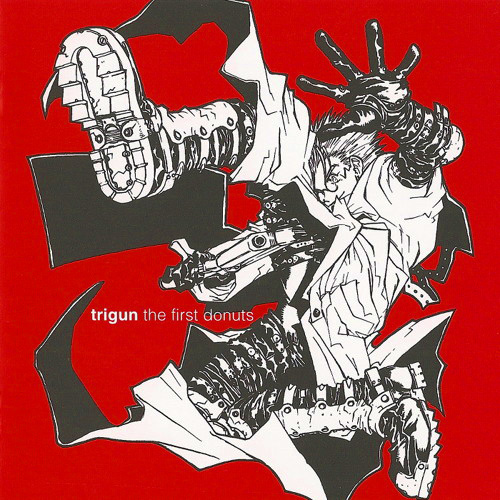
When I was around 8 years old, my older brother brought home a VHS tape emblazoned in gold that was labelled with a fiery “Dragon Ball Z” logo. He told me that he had seen some episodes of the series over at a friend’s house and he wanted me to watch it with him. I was immediately enraptured by what I was seeing, as it was so much different than anything else I had seen in my life. Unlike in other cartoons like, say, Looney Toons, where violence was treated more as a joke, here, violence served as a function of the story. While this obviously wasn’t entirely unheard of in something like, say, G.I. Joe or Spiderman, I think what struck me most about it as a kid was how absolutely raw the violence actually was. Characters had their arms ripped and got holes blown through their chests! There were even ramifications of this! Characters could actually die! It was so unlike anything I had seen before. No longer was I limited to silly antics of anthropomorphic animals or the relatively consequence-free actions of super heroes! This was raw! This was REAL!
…Alright, as an adult with the advantage of hindsight, I realize how stupid a lot of that sounds, but in my defense, I was 8. That’s what the series did for me, and from there on I desperately searched for more series like it. Naturally, I got into Pokémon when that started making its rounds, but that was largely more out of my love of the video games than any real attachment to the show. I didn’t find my next real obsession until, once again, my brother brought home another VHS tape from our local video shop called Trigun. This was different from Dragon Ball Z, which I had kept up with over the years. What struck me about this was that its central character, Vash the Stampede, was so different than good ol’ Goku and Vegeta. This was a series that lived and died by a moral code: life matters, no matter whose it was, and it was no one’s place to decide who should live and die. This was different than even what Dragon Ball Z was telling me; while other shows preached a similar message, Trigun was a series that spoke to me by how it adhered to that rule. This didn’t feel like it had to say that to get by censors, or felt like it was talking down to me. It wanted who was watching to know it genuinely did not believe in needless murder.
As a result of Trigun, I ended up wanting to watch every anime series I could. Whether it was watching Yu Yu Hakusho and Rurouni Kenshin on Toonami, or renting anime from a local rental shop that boasted they had the widest selection of anime in the state, I wanted to watch as much as I could. And, well, as a result, I’ve seen a lot. I remember a lot of what I’ve seen, but it’s hard for me to just outright rank every single series I’ve seen just based on my enjoyment. So, rather than arduously trying to remember my fond memories of all the series I’ve loved, I thought instead I would take a bit of a different approach with this list. My top 5 are all series I love to death, of course, but I feel like these are the series that most accurately portray my tastes in anime and, more importantly, reflect the most about what I love about the medium.
5. Chihayafuru
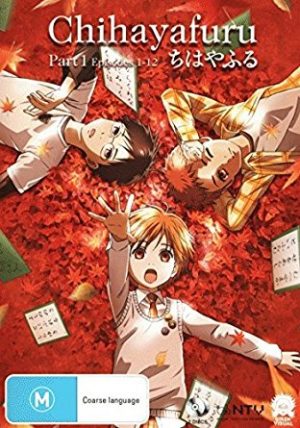
- Episodes: 50
- Aired: October 2011 – June 2013
Chihaya was just your average grade school tomboy until one day a classmate of hers by the name of Arata introduces her to the game of Karuta, a card game based on the memorization of classical Japanese poetry. Another classmate of hers by the name of Taichi, however, gets jealous of all the attention Chihaya is suddenly giving Arata, and steps into the middle of their budding relationship, stating he could definitely beat Arata if given the chance. Long story short, after Taichi loses in a game to Chihaya, the three form a bond of friendship that quickly falls apart after Arata is forced to move away to a different city. Chihaya and Taichi vow to continue playing Karuta so as to keep their connection to Arata. Flash foward to their high school years, where Chihaya and Taichi have grown apart, but quickly reconnect discovering they’re now attending the same high school and end up building a Karuta club together. Their goal: winning the Omi Jingu group tournament and also become the Queen and Meijin of Karuta!
Chihayafuru is the type of story, with its ability to tell long form slice-of-life style stories under the guise of a sports series, that’s only made possible by the medium. See, in the US, we don’t have character dramas about, well, just the people themselves. The closest we get to a portrayal of everyday life comes from sitcoms, which are pretty rooted in comedy. Anime, however, provides an outlet for different types of stories due to a different focus in demographics. Its characters are rooted in very human conflicts with themselves, like how Taichi is so determined to show Chihaya how great he is at Karuta that he takes for granted the moments where she shows him genuine affection; or how Chihaya becomes so blinded by her wide-eyed idealism that she doesn’t realize how much Taichi desperately wants her to just notice him as more than just a fellow Karuta player. While it is in general a light-hearted story, there’s a quiet tragedy to the characters and their motivations.
4. Hajime no Ippo (Fighting Spirit)
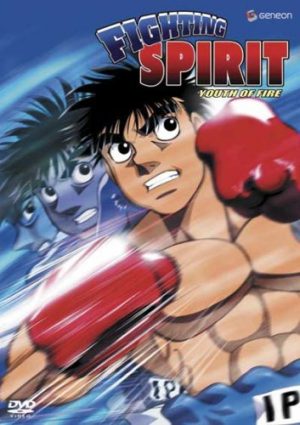
- Episodes: 125
- Aired: October 2000 – March 2014
Ippo is a poor high school boy who’s just trying to help his mother make ends meet. His father died when he was young, and left his wife to run their fishing shop without him. He grew up a rather meek boy, and as a result gets constantly bullied. A chance meeting with a boxer by the name of Takamura, however, opens Ippo’s eyes to the world of boxing. He begins his training to become a boxer, and slowly grows stronger and stronger until he finally sets his eyes on becoming the Japanese featherweight champion!
Ippo is effectively a stand-in here for all sports series. While the term “formula” has become something of a dirty word when discussing story-telling in this day and age, I actually kind of love the formula that Hajime no Ippo adheres to: The underdog story of the seemingly-normal kid who, through determination and hard work, becomes a national champion; or the cool but friendly rival who both inspires and is inspired by the fierce passion burning within our hero; or the stern but loving coach who guides our hero along his journey. Series like Captain Tsubasa and Slam Dunk may have created the genre, and maybe Haikyuu and Yuri!!! on ICE have perfected it, but it is my firm belief that Hajime no Ippo is the one that set the standard. It’s borderline camp, and I love everything that it ended up inspiring.
3. Mousou Dairinin (Paranoia Agent)
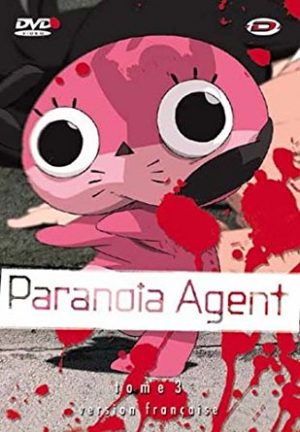
- Episodes: 13
- Aired: February 2004 to May 2004
A serial killer has broken loose in Musashino City! Well, not so much a killer as it is a serial attacker. He goes by the name of Lil’ Slugger (Shounen Bat in the original Japanese), as he’s defined by the golden bat he attacks people with. The story is largely episodic, with each episode highlighting a different character, the struggles they face day to day, and what leads them to being attacked by Lil’ Slugger.
I think a lot of times people get so focused on how anime is different from Western animation, due to its stylization and means of telling a story, that often the fandom forgets that it is a medium for actual animation. While each episode starts off grounded, it slowly devolves into surrealist, almost stream-of-consciousness type of imagery that’s meant to highlight the emotional distress that each character is facing. During these ending breakdowns, Lil’ Slugger is the only figure who is stable and solid, turning him into even less of a menacing figure and almost a means of hope. No one wants to admit it, but Lil’ Slugger is actually giving them an out from their problems. It’s a wonderfully trippy, experimental style of animation that actually serves the main narrative. While I think many would argue it’s not Satoshi Kon’s best work, it’s easily my favorite due to how it manages to blend its surrealist imagery so smoothly into the narrative to convey mood and theming.
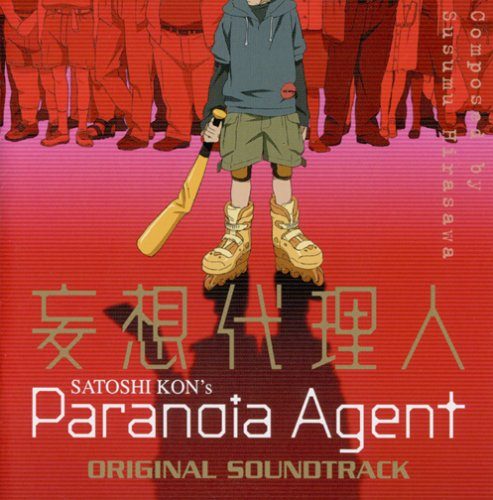
2. One Piece
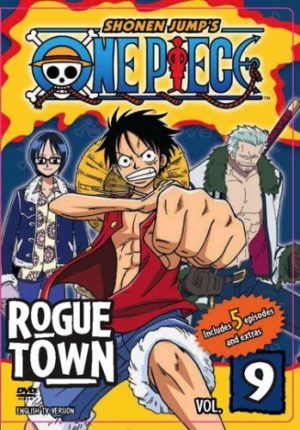
- Episodes: 770+
- Aired: October 1999 to Currently airing
It’s a tale most are familiar with. Gold Roger, former king of the pirates, was executed by the government. His final words? Goading the world to search for his greatest treasure! This inspires the new age of pirates, who set off in search of adventure. And one boy by the name of Monkey D. Luffy sets out to do just that. One Piece follows the adventures of Luffy and his attempts to build a crew and find the One Piece in order to become the new king of the pirates!
One Piece is a huge story. While a lot of other shounen battle series like Naruto and Bleach are similarly long, they tend to be more character driven stories. One Piece is really less the story about Luffy, and more the story of a world. It’s about a big world and the even bigger personalities that inhabit it. And it’s meticulously plotted out. Very few stories can claim to be the sheer size of One Piece and have so much foresight put into almost every single aspect of its narrative.
But, let’s be honest here, my love for One Piece is akin to how I feel about my favorite soda: I indulge in it about every day, it doesn’t exactly provide me with much nutritional content, and I get extremely cranky and annoyed when I suffer through withdrawals. One Piece is a huge part of my life in the same way I think that Star Wars and Harry Potter are for others. I just love looking over every single aspect of this series, following it as it happens, devising wild theories about what’s going to happen next, and just in general being enthusiastic about it. I love how simultaneously fun and tragic all these different characters are, and how it can be so awe-inspiring and completely stupid at the same time. I’ve watched series that have more meaningful stories, or are more competently made, but there aren’t any series I actually enjoy more than One Piece.
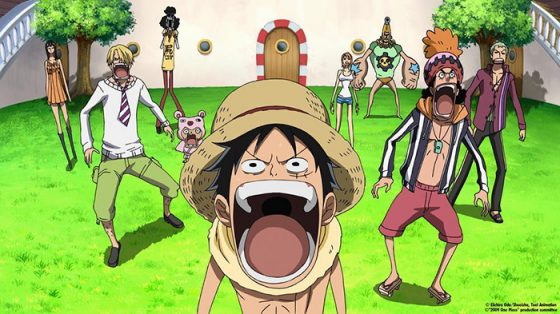
One Piece Season 7 Trailer
1. Trigun
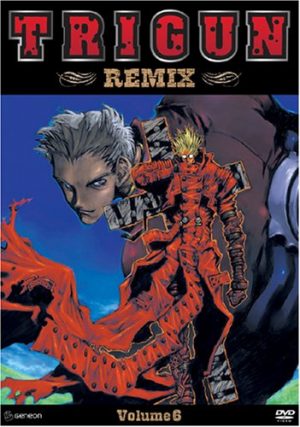
- Episodes: 26
- Aired: April 1998 to September 1998
Vash the Stampede is a wanted man on Planet Gunsmoke. This probably has something to do with how wherever he goes, destruction seems to follow. Though, based on his reputation, you probably wouldn’t realize that he’s actually a pretty affable guy who really doesn’t want to hurt anyone; but trouble always seems to find him. Two representatives from the Bernadelli Insurance company, by the names of Meryl and Milly are sent out to follow Vash and see if they can get out of any of the claims made by their clients that were made as a result of Vash’s wave of destruction.
I’m sure there are plenty of series that are better than Trigun out there. Heck, I’ve probably seen a lot of series that would be better. But Trigun represents a lot to me. It is, at its heart, a story about the death of innocence. Vash is truly sympathetic, as the sheer amount of abuse he takes in order to make sure no one dies is at first amusing but slowly turns heartbreaking. Yet, Vash’s story is really less about the importance of never killing, and more about the death of his innocence. What you discover throughout the series is that Vash actually follows this ideal almost blindly, having been told by his mother figure to never kill no matter what, and not once does he even question his own motivations for doing so. He loses sight of the fact that what’s important isn’t just preventing the taking of a life, but actually caring about the people you’re saving. Without getting too personal here, Trigun served as the beginning of the development of a moral compass for me, to help me understand the dangers of blind belief and what that can do to someone. I don’t think I would be the same person without having seen Trigun at the time that I did in my life, and that’s something that I can’t ignore.
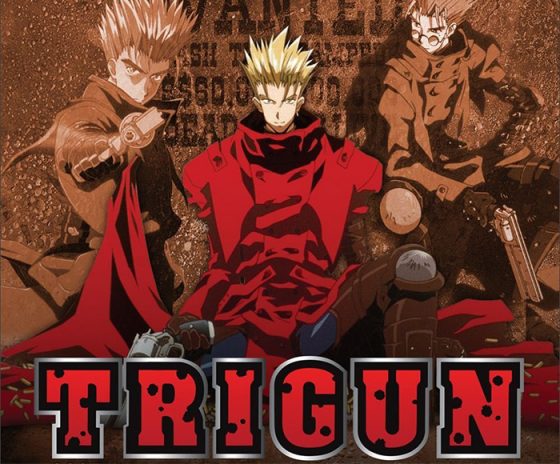
Trigun Trailer
Final Thoughts
The funny thing is, I don’t know how much I would even recommend all the anime in this list. I love all of it dearly, but I’ll admit Paranoia Agent isn’t for everyone, nor would I expect someone to invest the 300-some hours it would take to catch up with the mammoth of a series that is One Piece. There are tons more I love and wish I had more space for here, such as Full Metal Panic and especially Gurren Lagann (still perhaps some of the most fun I’ve had watching an anime), but I think this is about as accurate of a representation of my tastes and the series that have affected me as I think I can state. Please, if you’d like, leave a comment below letting me know what you think.
